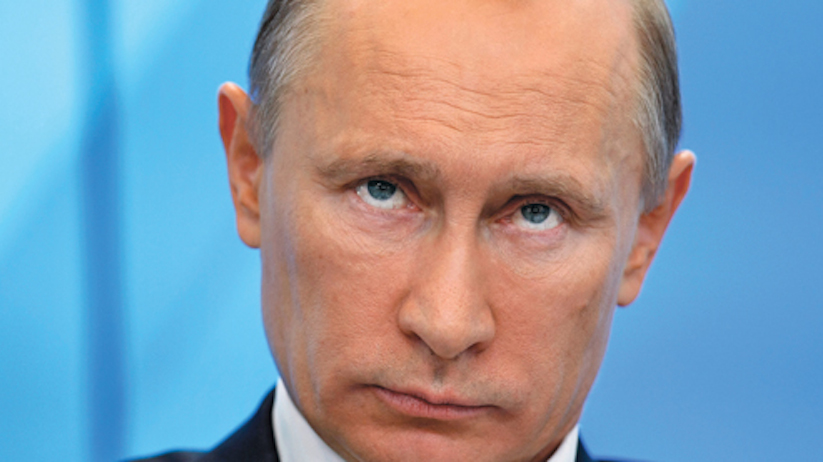Your morning five: Putin moves to annex Crimea
Also: Air Canada ceases flights to Venezuela
Russian President Vladimir Putin watches the cross country skiing men’s relay during the Sochi 2014 Olympic Winter Games at Laura Cross-Country Ski and Biathlon Center near Krasnaya Polyana February 16, 2014. REUTERS/Mikhail Klimentyev/RIA Novosti/Kremlin (RUSSIA – Tags: POLITICS SPORT OLYMPICS) ATTENTION EDITORS – THIS IMAGE HAS BEEN SUPPLIED BY A THIRD PARTY. IT IS DISTRIBUTED, EXACTLY AS RECEIVED BY REUTERS, AS A SERVICE TO CLIENTS – RTX18XI0
Share
We tell you five things you need to know this morning:
1. Vladimir Putin moved to annex Crimea. Warnings from western leaders be damned, Putin told the Russian Duma that Crimea’s referendum that supported unification with Russia was perfectly legal. American and European officials imposed sanctions on officials involved in the Russian effort to secure Crimea, and the Duma responded by daring western powers to apply sanctions much more widely. The National Post‘s John Ivison wonders how Canada might adjust its military doctrine for the times.
2. Air Canada won’t fly to Venezuela. Caracas is seeing fewer international carriers on its airport’s runways than normal, largely because many are complaining that the troubled government owes them millions in ticket fees. But the Canadian airline, which announced it would cease flights entirely and indefinitely, attributed the move to “ongoing civil unrest.” Twenty-nine people have died during recent anti-government protests that President Nicolas Maduro blames on American influence.
3. The Big Bang might not be just a theory. John Kovac and his team at the Harvard-Smithsonian Centre for Astrophysics used a telescope at the South Pole to locate gravitational waves in outer space. Scientists heralded the discovery of those waves as a “smoking gun” that proves the theory of inflation—the dramatic expansion of the universe in the split second that followed a Big Bang that created the universe. Max Tegmark, a cosmologist at the Massachusetts Institute of Technology, called Kovac’s work “one of the greatest discoveries in the history of science.”
4. Afghanistan remains a dangerous place. Canadian troops may have departed from the fledgling central Asian nation, but they didn’t leave a peaceful country. Fifteen people died and 27 were wounded when a suicide bomber in Maymana, a provincial capital in northwest Afghanistan, apparently detonated explosives near a popular weekly market. The attack comes just a few weeks before Afghans vote for their next president on April 5.
5. Thailand lifts emergency rule. Bangkok is a calmer city than its been in weeks, a peaceful respite after tense anti-government protests that killed at least 23 people. The government is lifting 60-day security measures that allowed authorities to set curfews and enforce checkpoints. Protesters still want those in power to resign in place of a people’s council. Their demonstrations may have shrunken somewhat, but it’s a fragile calm.
